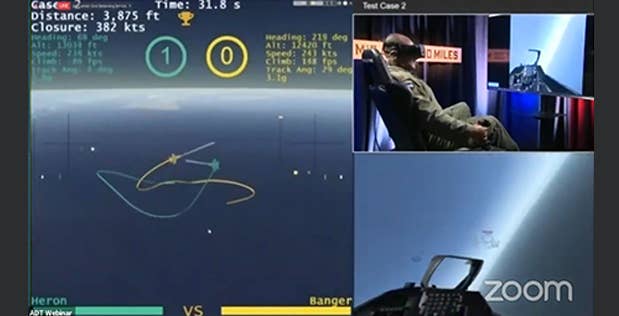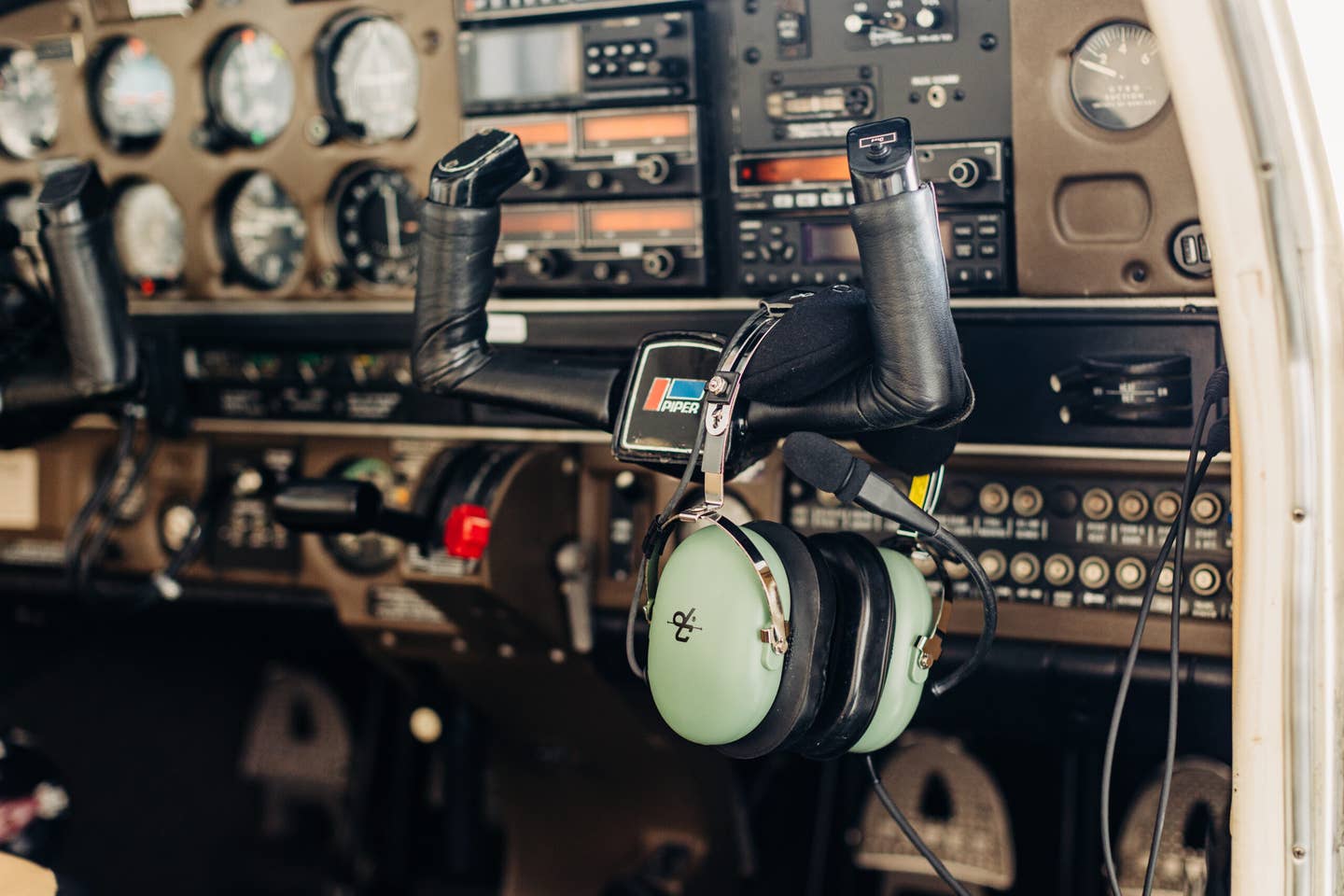AI-Powered Pilot Dominates Human Rival in Aerial Dogfight
The dogfight involved two small, unmanned, fixed-wing aircraft—one operated by AI, and the other controlled by a human from the ground.

During a 2020 DARPA trial, An operational F-16 pilot, call sign “Banger,” flies in a virtual reality simulator against the champion F-16 AI agent developed by Heron Systems. The Heron AI agent defeated the human pilot in five straight dogfights to conclude the AlphaDogfight Trials. [Courtesy: Defense Advanced Research Projects Agency]
In a new report from Chinese military researchers, an artificial intelligence-powered pilot defeated its human rival during an aerial dogfight for the first time in history.
The report was published in the Chinese journal Acta Aeronautica et Astronautica Sinica by a team from the Chinese army's Aerodynamics Research and Development Center in Sichuan, China.
The paper stated that the dogfight involved two small, unmanned, fixed-wing aircraft—one operated by AI, and the other controlled by a human from the ground. During combat, the AI-backed pilot easily outmaneuvered its opponent—defeating it in a swift 90 seconds.
Initially, the dogfight began with the human pilot making the first move—attempting to gain tactical advantage through various maneuvers, but the AI predicted its move and stuck close behind. The human pilot then nosedived the aircraft hoping the AI would follow and crash. Instead, the AI set the airplane in an ambush position—waiting for the human-piloted airplane to pull up. The AI kept the human aircraft in a constant underdog position and eventually, the simulation was called off.
“The era of air combat in which artificial intelligence will be the king is already on the horizon,” noted the project team involved in the study.
The research highlighted the superior performance possible from AI—as it is not limited by human factors such as excessive gravitational pull, oxygen levels, or fear of being harmed. As stated in the study, “With superior calculation ability it can more accurately predict the development of the battle to gain the initiative in the confrontation." Scientists also claimed, “Aircraft with autonomous decision-making capabilities can completely outperform humans in terms of reaction speed."
While China is the first to conduct its aerial dogfight with AI, the U.S. has been pioneering the way for AI technology for years through DARPA, or the Defense Advanced Research Projects Agency. A month before the Chinese paper was released, the U.S. was conducting its own AI test missions—including several combat drills on a real F-16 fighter.
Additionally, in August 2020, DARPA held its AlphaDogfight trials—a three-day competition to seek out the most capable AI fighter pilot. Of the eight teams, Heron Systems’ F-16 AI dominated the other companies before competing in the main event—taking on an experienced human F-16 pilot. In combat, the AI won five times in a row without the human pilot scoring a single hit.
“The AlphaDogfight Trials were a phenomenal success, accomplishing exactly what we’d set out to do,” said Col. Dan “Animal” Javorsek, program manager in DARPA’s Strategic Technology Office. “The goal was to earn the respect of a fighter pilot—and ultimately the broader fighter pilot community—by demonstrating that an AI agent can quickly and effectively learn basic fighter maneuvers and successfully employ them in a simulated dogfight."
And while AI technology is seemingly the future of aerial combat with its higher precision, quick decision-making, and greater risk-taking, it is not intended to replace human pilots. As DARPA envisions it, AI intelligence will fly the aircraft in partnership with the pilot who will monitor the AI and intervene if necessary.

Sign-up for newsletters & special offers!
Get the latest FLYING stories & special offers delivered directly to your inbox






